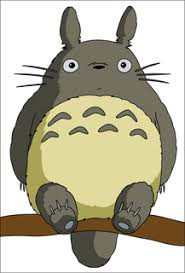NB. Warning: post is too long: you don't have to read it!
Scott, I've pondered this subject at length and have mixed feelings about it.
Years ago, I agreed with the notion that wild cockies fly and burn off the energy they eat in seeds. I gave all my birds a pellet diet and they seemed just fine. More recently, though, I've found they just seem to *do* better when they get a fair proportion of seed to eat. I was beginning to feel Rosetta's keel far more than I'd like to, so I added in some seed mix and she's doing much better. She's also happier, IMO.
Here's an analogy for you. It's a bit far removed from what we're talking about, but my tiny mind can see parallels.
When I was in college, we had an overseas student arrive from New Guinea. He spent two years at our uni learning techniques for running a mass spectrometer, along with your basic lab technician's course. (This was absolutely ridiculous, IMHO, as Mape was bright enough to have been running the department, not doing menial lab tech work). However, I digress.
Mape came from a village about 100k east of Port Moresby and he lived almost exclusively on fish and native vegetables. About twice a year, they'd kill a pig and he'd get pork. When he arrived here, he was what my Mum would call 'a magnificent specimen': he was six-foot-two and was built like Jason Momoa. We found out he'd won a silver medal in the South Pacific Games for weight-lifting. So, in a nutshell, Mape was buff!
Twelve months later, he was plagued with gut problems and seemed not to be able to shake a whole series of 'flu-like symptoms. The doctor was treating him for a 'nonspecific virus', but we (his friends) worked it out. The college diet just didn't suit his metabolism. While it kept the rest of us fighting fit, with meat, veggies, cereals and all good things, it was no good for a guy who had always lived on fish. We went out and bought a whole bundle of fish and Mape cooked it for us in the traditional PNG way (wrapped in banana leaves and packed with coconut meat, then baked among hot stones in a pit).
O yum! I have *never* eaten fish as good as that! We had fresh cooked mangoes alongside it and everyone begged for more.
Anyway, the end of the story was that Mape's illness dissolved away after only a few days back on his 'native' diet. He got back his trim figure, lost his bellyache and felt great again. This is what I think of when I'm pondering my birds' diet. I think birds are evolved to eat a certain way and when we change their diets we're not necessarily doing them a favour.
I mean, after all, Blind Freddy can see if a bird is getting fat on a seed-based diet. That would be an occasion to resort to pellets (as we did with Dommie). However, I think seeds should always be offered to seed-eating species in measured amounts because that's what they're adapted to. Sort of like herbivores being adapted to metabolise cellulose where other species don't do so well with it.
I haven't seen a single intensive study to support or disprove my theory (and remember: I'm only calling it a theory as I could well be wrong!) I've just formed an opinion from what I've observed in my own circumstances. Oh, and having plentiful access to numerous species of wild flocks has contributed as well. LOL! My parents were convinced I was taking drugs because of the intensity of my 'bird-watching habit'.

One last point. I've heard Jamieleigh Womach state that 'wild cockatoos fly many miles each day in search of food'. LOLOL! That's just not true of Oz natives. Our wild cockies fly from farm to farm, gobbling up spilled wheat, barley and corn and denuding rather more of the crops than they have a right to. *Some* Australian parrots (eg. the lorikeets for example) must fly after seasonally available native fruits and blossoms, but that's not necessarily 'many miles' either. It's usually just up the road to the next stand of trees.
O shoot! I just realised how long this is. Sorry. My bad.


